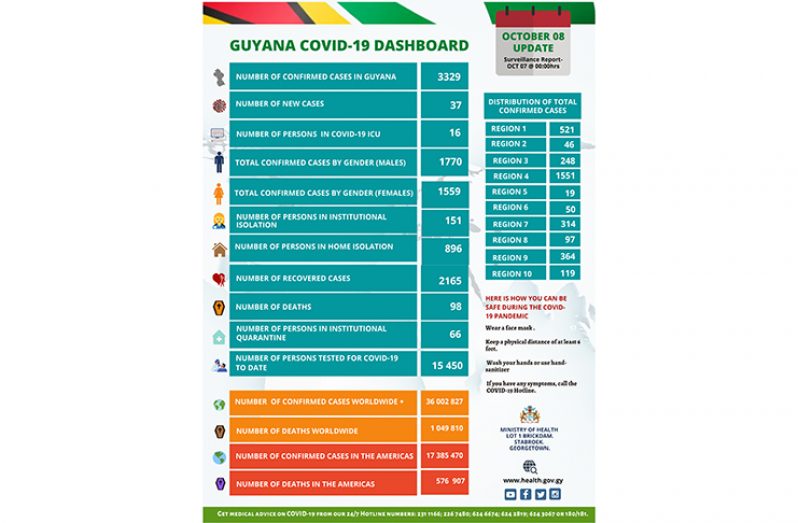SOME 81 persons have recovered from the dreaded novel coronavirus (COVID-19) and have been medically cleared within the past 24 hours.
According to statistics from local authorities, the number of recoveries moved from 2,084 on Wednesday to 2,165 on Thursday.
According to the World Health Organisation (WHO), COVID-19 is an infectious disease caused by a newly-discovered coronavirus. Most people who become sick with COVID-19 will experience mild to moderate symptoms, and recover without special treatment.
The WHO had said that 81 per cent of the persons who contract COVID-19 will have mild symptoms, while 14 per cent will have severe symptoms, and five per cent will need intensive care.
Health authorities have so far tested 15,450 persons, with 12,121 proving negative, and 3,329 positive. Some 37 of those cases were recorded within the past 24 hours.
While persons have recovered from this disease, 98 persons have died and there are 1,063 active cases which include 151 persons in institutional isolation, 896 in home isolation, and 16 in the COVID-19 ICU.
Authorities have said that cases are being detected because more tests are being done. Sample taking was also increased across the country because the authorities believed that many cases were going “under the radar”.
This suspicion had prompted the authorities to distribute more sample kits across the country, especially to regions where the infection rate is high. Most of the cases have so far been recorded in Regions One (Barima-Waini), Four (Demerara-Mahaica), Seven (Cuyuni-Mazaruni) and Nine (Upper Takutu-Upper Essequibo).
“We are sending out more kits, so there will be an increase in sample collection… the testing itself has components; one is sample collection, and then there is the processing of samples,” said Health Minister, Dr. Frank Anthony, in a recent report.
The actual testing will be done centrally at the National Reference Laboratory, because regional facilities lack the capacity and technical skills needed to get it done. While the government hopes to improve capacity in those regions, the immediate need for sample-testing takes precedence, especially with the high number of asymptomatic cases.
Persons were encouraged to take extra precautions because there is no approved cure or specific treatment for the disease. Guyanese were also reminded to observe the protocols established in the COVID-19 emergency measures.



.jpg)










